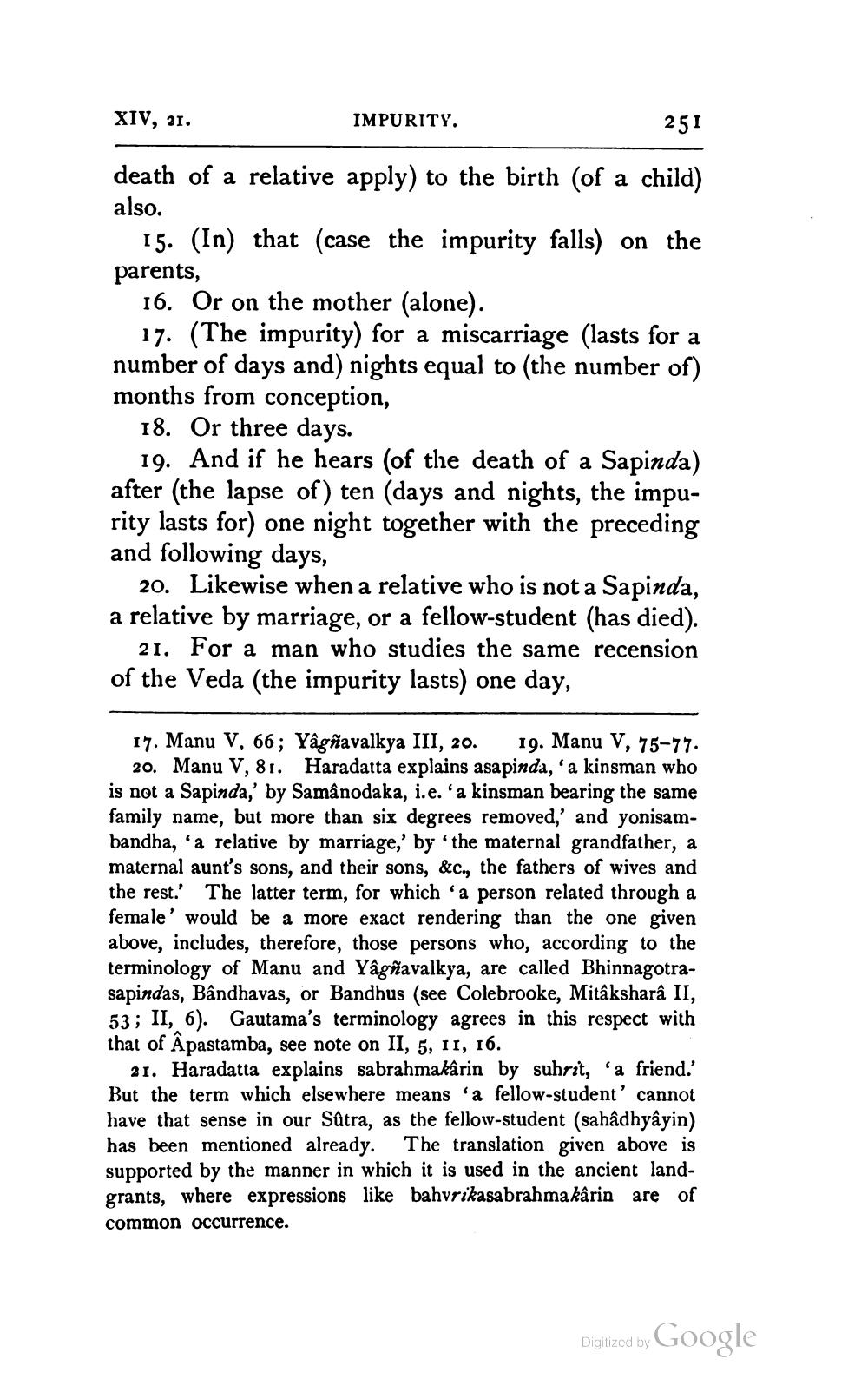________________
XIV, 21.
IMPURITY.
251
death of a relative apply) to the birth (of a child) also.
15. (In) that (case the impurity falls) on the parents,
16. Or on the mother (alone).
17. (The impurity) for a miscarriage (lasts for a number of days and) nights equal to (the number of) months from conception,
18. Or three days.
19. And if he hears (of the death of a Sapinda) after (the lapse of) ten (days and nights, the impurity lasts for) one night together with the preceding and following days,
20. Likewise when a relative who is not a Sapinda, a relative by marriage, or a fellow-student (has died).
21. For a man who studies the same recension of the Veda (the impurity lasts) one day,
17. Manu V, 66; Yâgñavalkya III, 20. 19. Manu V, 75-77.
20. Manu V, 81. Haradatta explains asapinda, 'a kinsman who is not a Sapinda,' by Samânodaka, i.e.'a kinsman bearing the same family name, but more than six degrees removed,' and yonisambandha, 'a relative by marriage,' by the maternal grandfather, a maternal aunt's sons, and their sons, &c., the fathers of wives and the rest.' The latter term, for which 'a person related through a female' would be a more exact rendering than the one given above, includes, therefore, those persons who, according to the terminology of Manu and Yâgñavalkya, are called Bhinnagotrasapindas, Bandhavas, or Bandhus (see Colebrooke, Mitâksharâ II, 53; II, 6). Gautama's terminology agrees in this respect with that of Apastamba, see note on II, 5, 11, 16.
21. Haradatta explains sabrahmakarin by suhrit, a friend.' But the term which elsewhere means 'a fellow-student' cannot have that sense in our Sútra, as the fellow-student (sahâdhyâyin) has been mentioned already. The translation given above is supported by the manner in which it is used in the ancient landgrants, where expressions like bahvrikasabrahma kârin are of common occurrence.
Digized by Google




